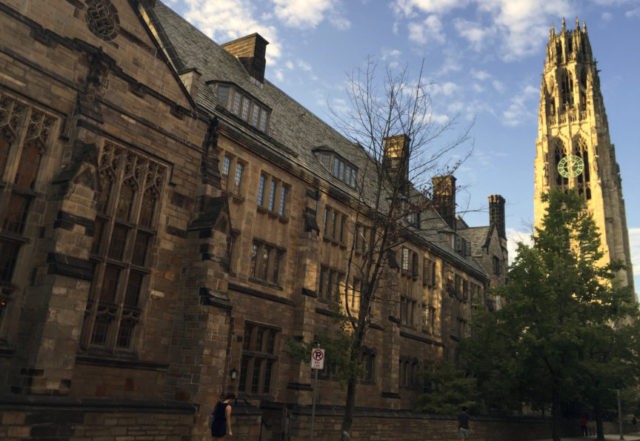A new study by attorney James C. Phillips suggests that top American law schools prefer to hire liberals over conservatives.
New research that utilizes mathematical models suggests that top American law schools discriminate against conservative and libertarian scholars in their hiring practices.
There are comparatively few conservative and libertarian law professors on U.S. law school faculties. Why is this? One possible explanation is discrimination based on political orientation. This paper tests this using a model of discrimination based on the work of Nobel Prize-winning economists Gary Becker and Kenneth Arrow in order to measure the “rank gap”—the difference in the ranking of a hiring law school based on one’s political orientation after controlling for other predictors of that ranking (clerkships, publications, the law school one graduated from, etc.).
The report concluded that conservative and libertarian scholars often end up at law schools ranked significantly lower than their equally credentialed liberal peers. To be specific, conservative and libertarian professors were hired at schools ranked approximately 12-13 spots lower than their equal counterpart on the left.
The paper, using matching statistical methods, finds that upon comparing conservative/libertarian law professors hired from 2001-2010 with equally credentialed liberal law professors, conservatives/libertarians end up, on average, at a law school ranked 12-13 spots lower (i.e., less prestigious). (See pages 36-37.) This rank gap is not uniform, being more moderate with the top 75 schools, non-existent with schools 76-100, and the largest with the lowest-ranked schools. (See page 40.) The paper finds a similar “rank gap” for law professors whose political orientation was unknown or moderate compared to their liberal peers.
Phillips ends his research by arguing that liberal faculty and students stand the most to gain from the introduction of more conservative and libertarian faculty members. “To the extent the legal academy is concerned about diversity, given the significant role politics plays in the law, few types of diversity could be more beneficial to legal education than increased political diversity among law school faculties,” he finished. “Ironically, liberal students and law professors will arguably benefit the most if the percentage of conservative and libertarian faculty members increases.”

COMMENTS
Please let us know if you're having issues with commenting.